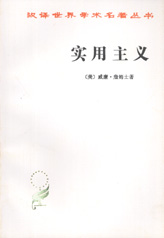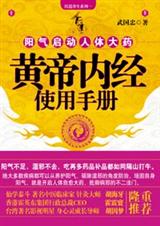牛津实用英语语法-第69章
按键盘上方向键 ← 或 → 可快速上下翻页,按键盘上的 Enter 键可回到本书目录页,按键盘上方向键 ↑ 可回到本页顶部!
————未阅读完?加入书签已便下次继续阅读!
Ships carry lifeboats so that the crew can escape if the ship sinks.
大船上带有救生艇,万一船下沉船员可以逃生。
This knife has a cork handle so that it will float if it falls overboard.
这把刀的柄是用软木做的,万一从船上掉下去,它可以浮在水面上。
A 目的从句常由so that+will/would或can/could+动词原形结构来表示。
这里can/could意为will/would be able to:
They make£10 notes a different size from£5 notes so that blind people can(=will be able to)tell the difference between them.
他们把十英镑的纸币和五英镑的纸币做成不同大小,以便使盲人可以区分开来。
They wrote the notices in several languages so that foreign tourists could (=would be able to)understand them.
他们把通知用几国文字写出来,以便让各国游客都能看得懂。
如句子的主要动词是一般现在时、一般完成时或一般将来时,则都可用can和will。如主要动词是一般过去时,则使用could和would。请看上面和下面这些例句:
I light/am lighting/have lit/will light the fire so that the house will be warm when they return.
我点着/正在点着/已点着/将要点着炉子,以便等他们回来时屋子就暖和了。
I have given/will give him a key so that he can get into the house when- ever he likes.
我已经给/会给他一把钥匙,好让他能随时进来。
I pinned the note to his pillow so that he would be sure to see it.
我把纸条用针别在他的枕头上了,好让他一定能看得见。
There were telephone points every kilometre so that drivers whose cars had broken down would be able to/could summon help.
每公里都有求援电话点,以便汽车出了毛病时司机可随时呼唤帮助。
如果带can/could的目的从句中省去that,那么这一目的性可能随之消失。He took my shoes so that I couldn’t leave the house(他把我的鞋拿走了,好让我出不了门)意为He took my shoes to prevent my leaving(他把鞋拿走是为了阻止我离开)。但是He took my shoes,so I couldn’t leave the house(他把鞋拿走了,我出不了门)意为He took my shoes;therefore I wasn’t able to leave(他把我的鞋拿走了,所以我不能够出门)。
B so that/in order that/that+may/might或shall/should+不定式结构也可构成目的从句。这种结构仅比上面A中所示的结构更为正规,在意思上是相同的。
注意:so that之后可跟will/can/may/shall或它们的过去式。
in order that或that之后只限跟may/shall或它们的过去式。
that除在戏剧、诗歌及文章中外极少单独使用。
关于时态一致的规定与上文所述相同。下文的句子是很正式的:
We carved their names on the stone so that/in order that future genera- tions should/might know what they had done.
我们把他们的名字刻在石头上,为的是让后代们知道他们的事迹。
These men risk their lives so that/in order that we may live more safely.
这些人甘冒生命危险,为的是让我们生活更安全。
在一般现在时中may比shall更常见,shall现已很少用。但在一般过去时中might或should都可使用。对上述形式要有所了解,但并不见得需要用,因为在一般情况下,用so that+ can/could或will/would就足够了。
C 表示否定目的的从句由助动词(will/would或should)变为否定式构成:
He wrote his diary in code so that his wife wouldn’t be able to read it.
为了不让妻子看懂,他用密码写日记。
He changed his name so that his new friends wouldn’t/shouldn’t know that he had once been accused of murder.
为了不让新朋友们知道他曾被控犯有谋杀罪,他改了名字。
Criminals usually telephone from public telephone boxes so that the police won’t be able to trace the call.
罪犯常在公用电话亭打电话,好让警察追查不到电话是从哪儿打来的。
表示否定目的的从句常可用to prevent+名词/代词+动名词或to avoid+动名词来代替:
He dyed his beard so that we should’t recognize him/to prevent us rec- ognizing him/to avoid being recognized.
他染了胡子,好让我们认不出/为了阻止/为了避免我们认出他。(被动态动名词)
She always shopped in another village so that she wouldn’t meet her own neighbours/to avoid meeting her own neighbours.
她经常去另外一个村子购买东西,以免碰到她的邻居/为了避免碰到她的邻居。
与表示否定目的的从句相比,人们更喜欢用这些不定式短语。
?
'Amber demo'
337 in case和lest
?
A in case
1 in case+主语+动词可跟在陈述句或命令句后面:
I don’t let him climb trees in case he tears his trousers.
我不让他爬树,以免撕破裤子。
句子的第一个动作常常是为if从句中的动作所做的准备或是对它采取的预防措施。if从句表示将来可能发生的动作。in case+一般现在时常意为because this may happen/because perhaps this will happen/for fear that this may happen(因为这大概会发生/因为这也许将会发生/以免它会发生)。
in case+一般过去时常意为because this might happen/be- cause perhaps this would happen/for fear that this would happen (因为这会发生/因为这将会发生/以免它会发生)。
在这里,无论现在时或过去时都可用should+动词原形来代替。should在此表示更小的可能性,但是这种结构不常见。
2 各种时态与in case连用
==================================
ABC Amber CHM Converter v6。22
Trial version
==================================
I’ll make a cake in case someone drops in at the weekend.
我将做个蛋糕以免有人周末来。
I carry a spare wheel in case I have/should have a puncture.
我带了个备用轮胎,以免车胎被刺破。
I always keep candles in the house in case there is a power cut.
我家里常备有蜡烛,以防断电。
I always kept candles in the house in case there was a power cut.
我家里以前常备有蜡烛,以防断电。
(另参见第227节。)
B lest意为for fear that(恐怕),后面跟should:
He doesn’t/didn’t dare to leave the house lest someone should recognize him.
他不敢出门,怕有人认出他来。
lest除在较正式的书面英语中出现外,一般不常用。
?
'Amber demo'
第三十四章
原因从句、结果从句、
让步从句、比较从句、时间从句?
?
'Amber demo'
338 原因从句和结果/原因从句
?
除了下面A2,A3中所示各种类型外,这两种从句均可由as或because来引导。但是用as引导原因从句较为稳妥(参见A);用because引导结果/原因从句较为稳妥(参见B)。
A 原因从句
1 由as/because/since 引导的原因从句:
We camped there as/because/since it was too dark to go on.
我们在那里露宿是因为天太黑,不能再继续往前走了。
As/Because/Since it was too dark to go on,we camped there.
因为天太黑不能再继续往前走,我们就在那儿露宿了。
2 in view of the fact that可用as/since/seeing that来表示,但不能用because:
As/Since/Seeing that you are here,you may as well give me a hand.
既然你在这儿,你就帮我个忙吧。
As/Since/Seeing that Tom knows French,he’d better do the talking.
既然汤姆懂法语,最好让他来谈。
3 在as/since/seeing that意指以前共知的或共知的陈述时,可用if来代替:
As/Since/Seeing that/If you don’t like Bill,why did you invite him?
既然/如果你不喜欢比尔,你为什么邀请了他?
注意:if so的用法:
—I hope Bill won’t e.
—If so(=If you hope he won’t e),why did you invite him?
—我希望比尔别来。
—如果这样(=如果你希望他不来),你为什么邀请了他?
关于if+so/not,参见第347节。
B 结果从句(参见第339节)由because或as引导:
The fuse blew because we had overloaded the circuit.
保险丝烧断了,因为我们使线路超载了。
He was angry because we were late.
他生气是因为我们来晚了。
As it froze hard that night there was ice everywhere next day.
因为那天晚上冷得厉害,所以第二天到处都是冰。
As the soup was very salty we were thirsty afterwards.
因为这汤很咸,后来我们渴得厉害。
C 这种组合也可用so连接两个主句的形式来表示:
It was too dark to go on,so we camped there.
天太黑了,不能继续往前走了,所以我们就在那儿露宿了。
You are here,so you may as well give me a hand.
你们既然在这儿,不如就帮我一下。
It froze hard that night,so there was ice everywhere next day.
那天夜里冷得厉害,所以第二天到处都是冰。
也可以使用therefore,但只限用于非常正式的句子中:
The Finnish delegate has not yet arrived.We are therefore postponing/ We have therefore decided to postpone/Therefore we are postponing the meeting.
芬兰代表还没有到达。我们因此要把会议推迟/因此我们已决定把会议推迟/因此我们要把会议推迟。(注意therefore可以放在几个不同的位置。)
?
'Amber demo'
339 such/so…that引导的结果从句
?
A such是形容词,用于形容词+名词结构之前:
They had such a fierce dog that no one dared to go near their house.
他们有一条如此凶猛的狗,以致没人敢靠近他们家。
He spoke for such a long time that people began to fall asleep.
他说了这么长时间,以致在座的人都犯困了。
B so是副词,用于副词和不带名词的形容词之前:
The snow fell so fast that our footsteps were soon covered up.
雪下得这么快,以致我们的脚印很快就被雪盖住了。
His speech went on for so long that people began to fall asleep.
他的讲话这么长,以致在座的人都开始犯困了。
Their dog was so fierce that no one dared e near it.
他们的狗太凶猛了,所以没人敢靠近它。
但such不能用于much和many之前,所以so可用于后跟名词的much和many之前:
There was so much dust that we couldn’t see what was happening.
灰尘太大了,使得我们看不清发生了什么事。
So many people plained that they took the programme off.
抱怨的人太多,所以他们取消了那个节目。
C 注意:such+a+形容词+名词可由so+形容词+a+名词来代替,所以such a good man可由so good a man来代替。这只能在名词前面有a/an的情况下使用。这种形式不常见,但有时出现在文学作品中。
有时为了表示强调,so位于句首。这时后面跟动词的倒装形式(参见第45节):
So terrible was the storm that whole roofs were ripped off.
暴风真可怕,把整个的屋顶全都刮飞了。
?
'Amber demo'
340 让步从句
?
它们由下列词来引导:although,though(参见第327节与第329节),even though,even if,no matter,however(参见第85节)。有时也可以使用whatever。as也可以,但是只限于形容词+as+be结构。
Although/Though/Even though/Even if you don’t like him





